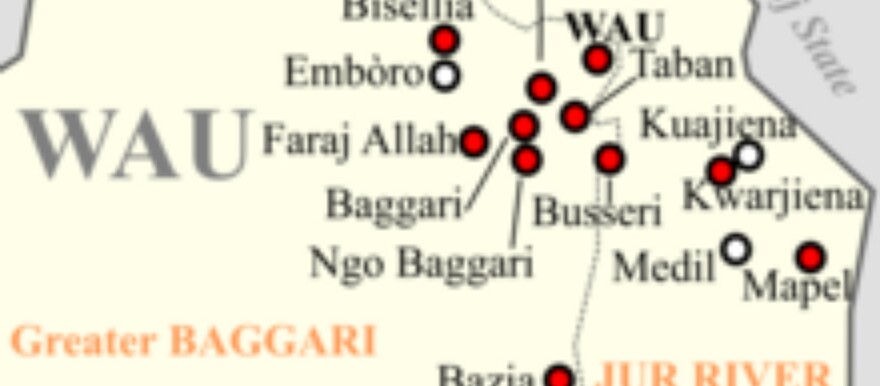In a significant move to combat deforestation and protect the environment, the commissioner of Jur River County in Western Bahr el Ghazal state, James Ernest Makuei, issued a new order on Wednesday, banning the unauthorised cutting down of trees within the county.
This decision comes as a response to the alarming rise in illegal tree felling, particularly of valuable mahogany trees, which has been contributing to environmental degradation and a decrease in rainfall in the region.
Commissioner Makuei emphasised the importance of adhering to the law and its clear provision that for every tree cut down, two must be planted in its place. He stated, “Trees are being cut down rapidly, but the law is clear that if you cut down a tree, you have to plant another one so that we can avoid deforestation. Our rainfall woes are exacerbated by the haphazard cutting of mahogany trees, which is why we have issued Order Number Five (5), prohibiting tree cutting in Jur River County.”
He warned that strict legal action would be taken against anyone found defying this order, stating, “We have informed the security agencies that no tree is to be cut down in Jur River County without approval from the forestry authority. People are now cutting timber, but timber is a vital resource that sustains the country’s economy, and it should not be exploited recklessly.”
Makuei called upon the forestry department in the state to intensify their efforts in monitoring and enforcing laws protecting tick forestry plantations, mahogany, and bamboo.
He stressed, “We have also included measures to screen any timber leaving the country for approval, as these laws are outlined in the order. To ensure our community follows these regulations, we must control and safeguard our country’s resources, state resources, and county resources because these resources are allocated by the government for the development of its citizens. Violating these regulations is a serious offence.”
Lino Anthony, a local chief within Jur River County, expressed his support for the commissioner’s order, saying, “I thank the commissioner for the order he issued. This is the work that we want as chiefs. We can support the commissioner’s order as chiefs.” Anthony urged fellow chiefs and youth to actively enforce the local order and emphasised the importance of community involvement when considering tree removal for development projects.
He added, “Cutting down trees for sale is not advisable, and if you want to cut down a tree as a chief or youth leader, you have to call for a meeting with the community if you want to build a school or any development for the community.”
Anthony also voiced concerns about the widespread practice of forest burning, which adversely affects valuable tree species like Lulu trees and other fruit-bearing trees. “Burning grasses is not good because it affects Lulu trees and other fruits. If you have to cultivate, you have to make fencing to protect the forest.”
In closing, Anthony urged the community to embrace alternative income-generating activities like agriculture rather than relying solely on tree cutting for financial gain. He emphasised, “I want to tell our community that we have to observe and implement the local order of the commissioner. Cutting trees is not the only way to make money; we have to cultivate.”
Meanwhile, the Alliance for Land Rights Organization Executive Director, Alfred Angok Uliny, welcomed the commissioner’s order as a positive step in the fight against deforestation. However, he stressed the need for rigorous implementation, stating, “Yes, the order of the commissioner banning cutting down of trees is good, but he has to implement the order by making a follow-up because if the order is issued without follow-up, it will not be effective.”
Uliny highlighted the organisation’s ongoing efforts to raise awareness about tree planting since 2017, encouraging the community to replace each tree cut with two new ones. He expressed hope that the commissioner’s order would curtail the activities of charcoal producers and contribute to the preservation of the region’s vital forests.




